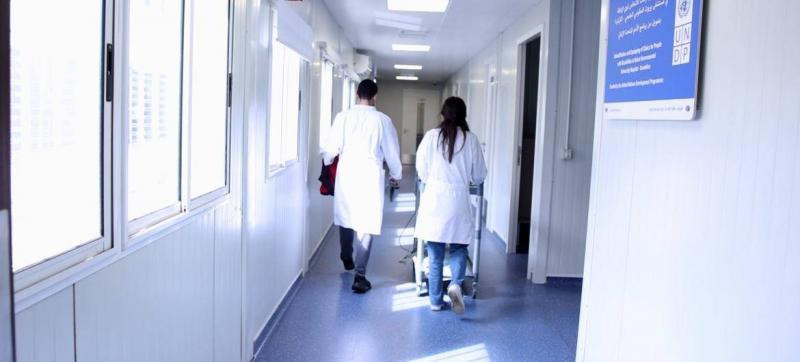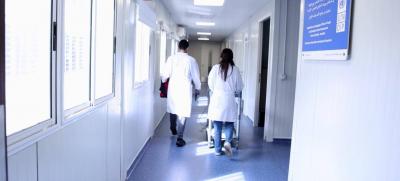As part of ongoing efforts to achieve the Sustainable Development Goals in Lebanon, the United Nations Development Programme (UNDP) has launched the Karantina Rehabilitation Center at the Beirut Governmental Hospital. The aim is to promote social inclusion for individuals with disabilities. The Karantina Center was opened in partnership with the Lebanese Ministry of Public Health and is the first of its kind implemented in a public hospital in Lebanon.
Melanie Hauenstein, the UNDP Resident Representative in Lebanon, affirmed that implementing the Sustainable Development Goals represents one of the main tasks of the UNDP. She stated in an interview with UN News: "The Sustainable Development Goals should be accessible to everyone and inclusive of all. That is why we at the UNDP work hard to ensure that every individual in the community is part of sustainable development and that people with disabilities are not excluded, so they can live a dignified life that meets their aspirations."
Hauenstein emphasized the necessity of integrating persons with disabilities into all programs and projects, adding: "This is particularly important for Lebanon as there is a significant number of people with disabilities. Today, between 10 to 15 percent of the Lebanese population suffers from disabilities in one way or another. Therefore, we at the UNDP seek to ensure the inclusion of persons with disabilities in all our programs and projects."
Following the Beirut Port explosion, Hauenstein says the UNDP invested $700,000 from the Crisis Response Fund in New York to open the dedicated center for disabilities at the Karantina Governmental Hospital. The center is managed by the NGO ArcEnCiel, which is committed to providing physiotherapy, occupational therapy, and other services to many individuals. She adds: "Within 4 months, the center provided a range of services to over 300 people, in addition to 800 free physical and mental therapy sessions for marginalized individuals in the Karantina neighborhood, one of the most affected areas by the Beirut Port explosion, which left many with physical and psychological difficulties."
The Karantina Rehabilitation Center spans 700 square meters and includes fully equipped clinics, offering about 360 therapeutic sessions and 80 medical consultations monthly, all free of charge. This includes physical therapy, speech therapy, psychological therapy, early interventions, and other services that will benefit people with disabilities, according to the UN program.
To ensure uninterrupted energy services, the center is equipped with a hybrid system that operates on solar photovoltaic and diesel energy with a total capacity of 80 kilowatts and a battery bank providing 150 kilowatt-hours of energy consumption, made possible thanks to the generous support from the German government through the KfW Development Bank.
### Sustainable Development Goals
In 2015, the United Nations established the Sustainable Development Goals, a plan to achieve a better and more sustainable future for all. These goals address the global challenges we face, including those related to poverty, inequality, climate change, environmental degradation, prosperity, peace, and justice. In addition to the interconnected nature of the goals, it is important to achieve each one by 2030 to ensure that no one is left behind. Despite each having specific targets, collectively, the Sustainable Development Goals comprise 169 objectives. They cover a wide range of social and economic development issues, most notably poverty, hunger, health, education, climate change, gender equality, water and sanitation, energy, the environment, as well as social justice or social inclusion.




